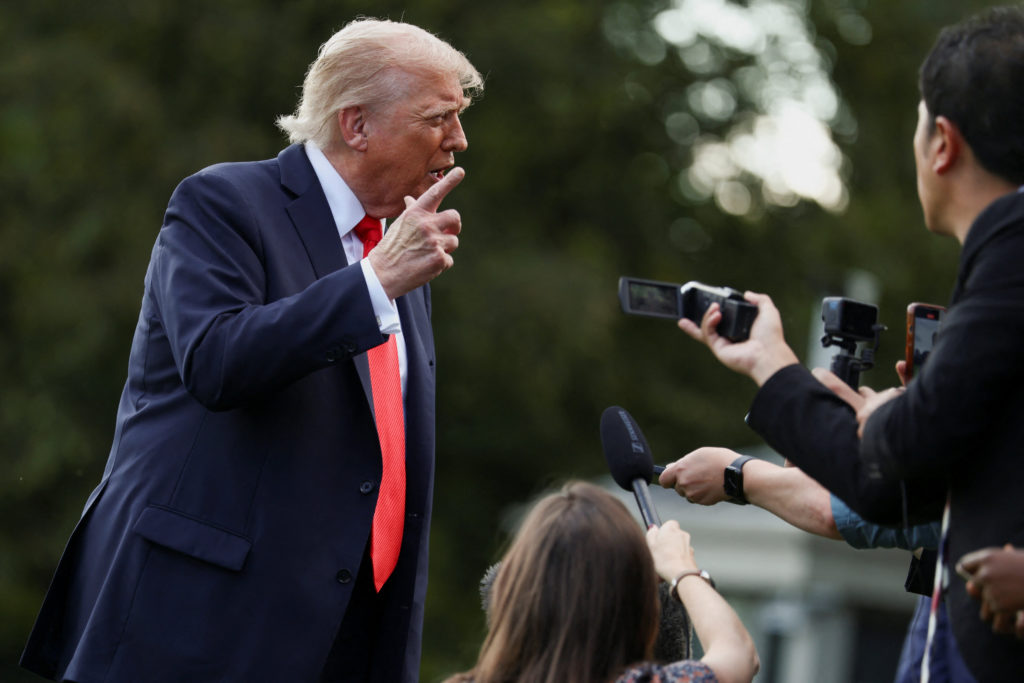The Evolution of Media Under Trump: A Shift in Power Dynamics
In an unprecedented turn of events, former President Donald Trump leveraged threats, lawsuits, and governmental pressure to fundamentally reshape the American media landscape. His long-standing grievances against the media—an industry he believed mocked, criticized, and scorned him—have culminated in tangible consequences for how news and entertainment are delivered in the country.
Legal and Financial Pressure on Media Outlets
Trump’s approach has been one of calculated aggression. He has successfully extracted multimillion-dollar settlements from major networks, forced companies into costly litigation, and influenced programming decisions based solely on personal grievances. His latest victory came with the announcement from ABC that "The Jimmy Kimmel Show" would be taken off the air following the comedian’s remarks regarding the assassination of conservative activist Charlie Kirk. Kimmel’s comments, which touched upon the suspect’s disputed political ideology, drew the ire of Trump and his allies.
The Role of the FCC in Media Reform
Adding fuel to the fire, Brendan Carr, the head of the Federal Communications Commission (FCC) selected by Trump, warned ABC and its affiliates that they could face repercussions if Kimmel was not reprimanded. Carr’s ultimatum underscored a broader strategy employed by Trump and his loyalists: Utilize the machinery of the federal government to pressure private companies into compliance.
With Carr stating, “We can do this the easy way or the hard way,” he made it clear that there would be repercussions for the networks that did not align themselves with Trump’s sentiments. This marked a bold attempt to restructure the narrative around media conduct and accountability.
Trump’s Continued Critique of the Media Landscape
During a press conference in Britain, Trump continued to vocalize his disdain for the media. He labeled Kimmel’s remarks as “horrible” and emphasized that Kimmel should have been fired long before, attributing the situation to a lack of talent—a critique that seemed to resonate with Trump’s unfiltered approach to public discourse.
Beyond the Kimmel controversy, Trump’s engagements with media outlets have been extensive. He has reached settlements with networks like ABC and CBS over perceived negative coverage and has initiated defamation lawsuits against respected publications like The Wall Street Journal and The New York Times. These actions raise questions about the balance of power and the role of media in a democratic society.
The Alarm Over Free Speech Protections
Trump’s media assault comes at a time when the implications for free speech could not be more urgent. In light of Kirk’s assassination, Attorney General Pam Bondi’s comments suggested a willingness to target those implicated in hate speech. Advocates voiced concerns that an expansive definition of hate speech could criminalize dissent, a severe deviation from the protections traditionally afforded by the First Amendment.
The Supreme Court has previously maintained that government officials cannot coerce private parties to suppress dissenting views. Yet, the intensified scrutiny on media programming creates a chilling atmosphere that could deter future criticism of power.
Comedy in the Crosshairs
The intersection of politics and comedy has become increasingly contentious. Trump has been known to fixate on late-night hosts, whose influence remains significant despite declining ratings. Kimmel’s remarks regarding Kirk’s assassination, during which he criticized the GOP’s response, ignited backlash not only from Trump’s camp but also from various media executives who felt the need to acquiesce to regulatory pressure.
Corporate Response to Political Pressure
In light of Carr’s warnings and the political firestorm surrounding Kimmel’s comments, Nexstar Media Group, the largest operator of television stations in the U.S., soon mirrored Carr’s language, stating that airing Kimmel’s show was "simply not in the public interest at the current time." This statement underscored the dilemma facing networks as they navigate governmental oversight while maintaining their editorial independence.
ABC’s subsequent removal of Kimmel from the airwaves raised questions about the long-term impact of this kind of censorship. With Sinclair broadcasting a special in memory of Charlie Kirk during Kimmel’s time slot and calling for Kimmel to apologize, the media battle lines have clearly been drawn.
Congressional Reactions and Wider Implications
House Democratic leaders condemned the actions of the Trump administration as “bullying,” accusing Carr of forcing ABC to comply with White House demands. They criticized this as part of a broader “war on the First Amendment,” emphasizing that such actions threaten the foundational values of American democracy.
Trump’s triumph over Kimmel was celebrated on his social media platform, where he encouraged other networks to follow suit in dismantling programming that deviated from his narrative. His call for the cancellation of shows like those hosted by Jimmy Fallon and Seth Meyers serves as a clear directive that resistance to his influence could have serious repercussions for media figures.
The Consequences of Media Manipulation
As the dynamics between political authority and media play out further, the implications for free speech and journalistic integrity are stark. Trump’s presidency demonstrated how pressure tactics and high-profile legal actions could alter the course of public dialogue. The Kimmel incident illustrates a worrying trend where media personalities are increasingly susceptible to governmental influence, leading to potential self-censorship and a departure from critical commentary that challenges the powerful.
The evolving relationship between the media and political entities continues to unfold, indicating that the battle for control over narratives and public discourse is far from over.



